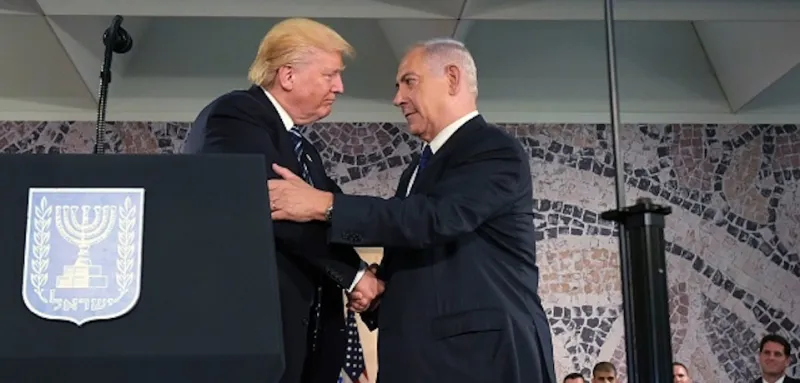As the political landscape continues to evolve, former President Donald Trump made an unexpected plea that has drawn significant attention and sparked debate among political analysts and supporters alike. This plea was directed towards Israeli Prime Minister Benjamin Netanyahu, urging him to adopt a more reasoned approach to the ongoing conflicts in the Middle East. Trump’s appeal positioned itself within a broader context of international relations and U.S. foreign policy, particularly regarding Israel and its neighboring countries.
In his statement, Trump emphasized the importance of dialogue and compromise, suggesting that Netanyahu should consider the long-term implications of his decisions. “Peace is possible if both sides choose to engage in meaningful discussions,” Trump asserted, highlighting the need for a balanced perspective. This call for reason struck many as surprising, given Trump’s often confrontational style and his previous support for hardline policies in the region.
Political analysts noted that Trump’s unexpected stance could be seen as an attempt to shape his legacy as a promoter of peace, rather than as a divisive figure. The former president’s comments prompted a range of reactions. Some supporters praised him for advocating for diplomacy, while critics argued that his past actions, including the controversial recognition of Jerusalem as Israel’s capital, undermined his credibility on this issue.
The juxtaposition of Trump’s past policies with his current plea raises questions about his true intentions and the sincerity behind his words. Furthermore, the timing of Trump’s remarks cannot be overlooked. As tensions in the region continue to escalate, particularly with ongoing violence and political instability, many believe that a plea for reasoned dialogue is both timely and necessary.
The international community has been increasingly concerned about the prospect of escalating conflicts, and Trump’s appeal could be interpreted as an acknowledgment of the urgent need for resolution. In light of the complexities surrounding Israeli-Palestinian relations, the question remains whether Netanyahu will heed Trump’s advice. Historical patterns suggest that leaders often prioritize national interests over external recommendations.
However, Trump’s unexpected plea may serve as a catalyst for renewed discussions, prompting both Israelis and Palestinians to explore potential pathways toward peace. Ultimately, the effectiveness of Trump’s appeal will depend on a multitude of factors, including geopolitical dynamics and the willingness of leaders to embrace compromise.
As the situation develops, observers will be keen to see how this unexpected request influences the actions of Netanyahu and the broader international community.














